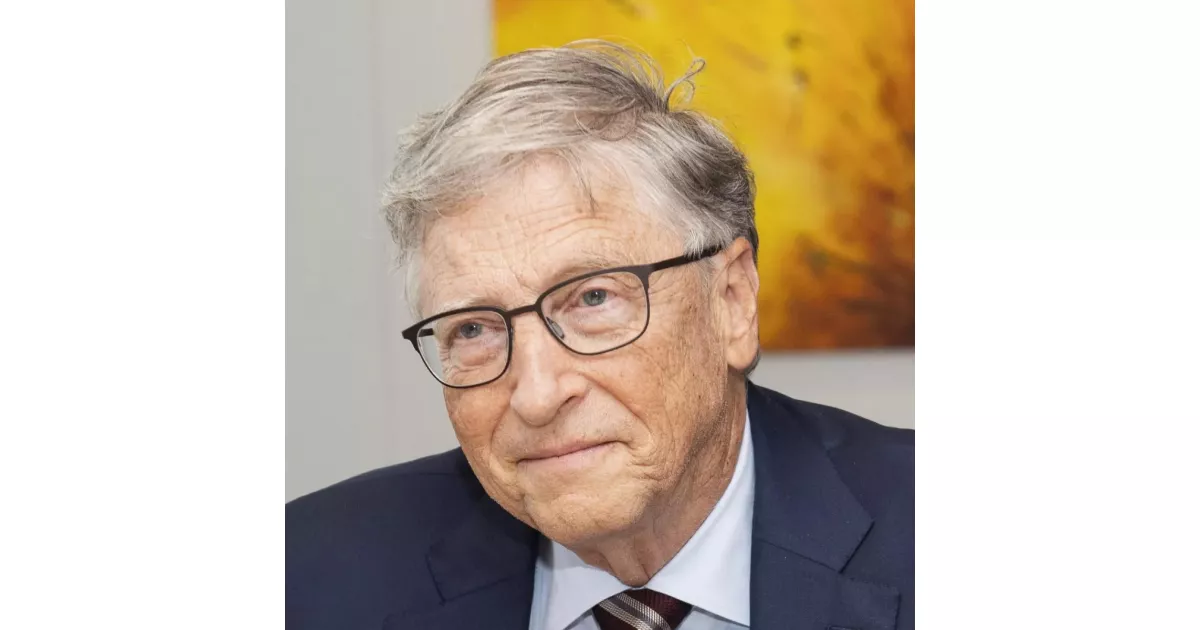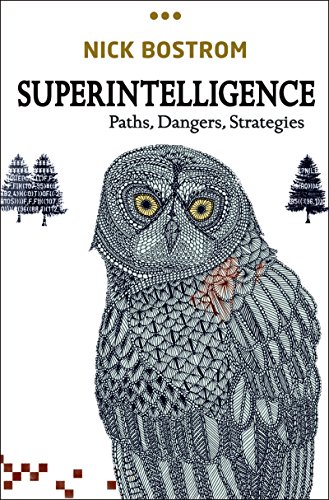Bill Gates, an American businessman and philanthropist, revolutionized personal computing as co-founder of Microsoft in 1975 alongside Paul Allen. Microsoft's IPO in 1986 catapulted Gates to billionaire status by 1987, becoming the world's youngest at the time. He dominated Forbes' wealthiest person list for 18 years between 1995 and 2017, including a 13-year consecutive reign. Gates became the first centibillionaire in 1999. As of May 2025, his net worth stands at $115.1 billion, ranking him as the world's thirteenth-richest individual.
1925: William H. Gates Sr. Born
William H. Gates Sr., Bill Gates's father, was born in 1925.
1929: Mary Maxwell Born
Mary Maxwell Gates, Bill Gates's mother, was born in 1929.
October 28, 1955: William Gates III Born
On October 28, 1955, William Henry Gates III was born in Seattle, Washington. He is an American businessman and philanthropist.
1970: CCC Went Out of Business
In 1970, Computer Center Corporation (CCC) went out of business, ending the arrangement where Bill Gates and others would find bugs in CCC's software in exchange for extra computer time.
1972: Served as Congressional Page
In 1972, at age 17, Bill Gates served as a congressional page in the House of Representatives.
1973: Enrolled at Harvard University
In 1973, Bill Gates enrolled at Harvard University, where he took classes including Math 55 and graduate level computer science courses.
1973: Graduated from Lakeside School
In 1973, Bill Gates graduated from Lakeside School and enrolled at Harvard University in the autumn.
1974: Joined Paul Allen at Honeywell
In the summer of 1974, Bill Gates joined Paul Allen at Honeywell.
November 1975: Joined MITS and Founded Micro-Soft
In November 1975, Bill Gates took a leave of absence from Harvard to work with Allen at MITS, after a successful demonstration of the Altair BASIC interpreter. Allen named their partnership "Micro-Soft".
1975: Primary responsibility for Microsoft's product strategy
From 1975 until 2006, Bill Gates had primary responsibility for Microsoft's product strategy from the company's founding.
1975: Co-founded Microsoft
In 1975, Bill Gates co-founded the software company Microsoft with his childhood friend Paul Allen.
1975: MITS Altair 8800 Release and Microsoft Founding
In 1975, the MITS Altair 8800 was released, and Bill Gates and Paul Allen saw the opportunity to start their own computer software company, Microsoft. Gates dropped out of Harvard that year.
February 1976: An Open Letter to Hobbyists
In February 1976, Bill Gates wrote An Open Letter to Hobbyists asserting that most users of Microsoft Altair BASIC had not paid for it, jeopardizing software development incentives.
1977: Ballmer Graduates from Harvard
In 1977, Steve Ballmer, Microsoft's President, graduated from Harvard. The Maxwell Dworkin Laboratory at the Harvard John A. Paulson School of Engineering and Applied Sciences is named after the mothers of both Gates and Ballmer who donated to the lab.
January 1, 1979: Moved to Bellevue, Washington
On January 1, 1979, Microsoft moved from Albuquerque to Bellevue, Washington.
July 1980: IBM Approached Microsoft
In July 1980, IBM approached Microsoft concerning software for its upcoming personal computer, the IBM PC, after Gates's mother mentioned Microsoft to John Opel, IBM's then CEO. IBM first proposed that Microsoft write the BASIC interpreter.
June 25, 1981: Microsoft Restructuring
On June 25, 1981, Bill Gates oversaw Microsoft's company restructuring, which re-incorporated the company in Washington state and made Gates the president and chairman of the board.
1981: Microsoft Incorporated
In 1981, Microsoft incorporated, and Bill Gates became president and chairman of the board.
1981: Reputation for being distant
In 1981, an industry executive complained that "Gates is notorious for not being reachable by phone and for not returning phone calls."
1983: Paul Allen Left Microsoft
In early 1983, Paul Allen left Microsoft after receiving a Hodgkin lymphoma diagnosis, ending the formal business partnership between Gates and Allen.
November 20, 1985: Launched Microsoft Windows
On November 20, 1985, Microsoft and Bill Gates launched their first retail version of Microsoft Windows.
August 1986: OS/2 Development Deal with IBM
In August 1986, Microsoft struck a deal with IBM to develop a separate operating system called OS/2.
1986: Microsoft IPO
In 1986, Microsoft had its initial public offering (IPO), after which Gates became the world's youngest billionaire the following year.
1987: Bill personifies Microsoft
By 1987 Computerworld quoted an industry observer who said "Bill personifies Microsoft, and hotshots want to work for him".
1987: Computerworld quote
In 1987 Computerworld quoted an industry observer who said "Bill personifies Microsoft, and hotshots want to work for him".
1987: Meeting Melinda French
In 1987, Bill Gates met Melinda French at a trade fair in New York, where she was a new employee at Microsoft.
1987: Listed as a billionaire
In 1987, Bill Gates was listed as a billionaire in Forbes magazine's first America's richest issue. He was the world's youngest-ever self-made billionaire, with a net worth of $1.25 billion.
1987: Became Youngest Billionaire
In 1987, following Microsoft's IPO in 1986, Bill Gates became the world's youngest billionaire at age 31.
1989: Founded Corbis
In 1989, Bill Gates founded Corbis, a digital imaging company.
1989: Last Code with Company Products
In 1989, Bill Gates wrote code that shipped with the company's products.
1993: Engagement to Melinda French
In 1993, Bill Gates and Melinda French became engaged after dating for six years.
1993: Ranked first on Forbes 400 list
In 1993, Bill Gates was ranked first on the Forbes 400 list of wealthiest Americans.
January 1, 1994: Marriage to Melinda French
On January 1, 1994, Bill Gates married Melinda French at the Manele Golf Course on the Hawaiian Island of Lānaʻi.
1994: Creation of the William H. Gates Foundation
In 1994, Bill Gates donated some of his Microsoft stock to create the "William H. Gates Foundation".
1994: Purchase of Codex Leicester
In 1994, Bill Gates purchased the Codex Leicester, a collection of scientific writings by Leonardo da Vinci, for US$30.8 million at auction.
1994: Mary Maxwell Gates Death
Mary Maxwell Gates, Bill Gates's mother, passed away in 1994.
November 1995: The Road Ahead Publication
In November 1995, Bill Gates's book, The Road Ahead, co-authored with Nathan Myhrvold and Peter Rinearson, was published. It discussed the personal computing revolution and the future information superhighway.
1995: Ranked as the richest person
In 1995, Bill Gates was ranked as the richest person in the world on The World's Billionaires list.
1995: World's Wealthiest Person
In 1995, Forbes magazine ranked Bill Gates as the world's wealthiest person, a position he held for 18 out of 24 years between 1995 and 2017.
January 1996: Gates Donates to Stanford Computer Science Building
In January 1996, Bill Gates donated $6 million for the construction of the Gates Computer Science Building at Stanford University.
1996: Ranked as the richest person
In 1996, Bill Gates was ranked as the richest person in the world on The World's Billionaires list.
1997: Purchase of Private Jet
In 1997, Bill Gates bought a private jet after previously flying coach in commercial aircraft.
1998: Purchase of Lost on the Grand Banks Painting
In 1998, Bill Gates reportedly paid $30 million for the original 1885 maritime painting Lost on the Grand Banks.
1998: Rejecting Software Industry Regulation Before the US Senate
In 1998, Bill Gates testified before the United States Senate, rejecting the need for regulation of the software industry.
1998: Ranked as the richest person
In 1998, Bill Gates was ranked as the richest person in the world on The World's Billionaires list.
1998: United States v. Microsoft case
In the 1998 United States v. Microsoft case, Bill Gates gave deposition testimony that several journalists characterized as evasive.
1999: First Centibillionaire
In 1999, Bill Gates became the first centibillionaire, when his net worth briefly surpassed US$100 billion.
1999: Time 100 Most Influential
In 1999, Bill Gates was named as one of the 100 most influential people of the 20th century by Time magazine.
1999: Business @ the Speed of Thought Publication
In 1999, Bill Gates's book, Business @ the Speed of Thought, co-authored with Collins Hemingway, was published. It discusses the integration of business and technology.
1999: Gates's wealth surpassed $100 billion
In 1999, Bill Gates's wealth briefly surpassed US$100 billion, making him the first person to reach this net worth.
2000: Decline in Microsoft holdings
After 2000, the nominal value of Bill Gates' Microsoft holdings declined due to the dot-com bubble burst and charitable donations.
2000: Co-founded Bill & Melinda Gates Foundation
In 2000, Bill Gates and his then-wife Melinda French Gates co-chaired the Bill & Melinda Gates Foundation, focusing on health, education, and poverty alleviation.
2000: Steve Ballmer Succeeded as CEO
In 2000, Steve Ballmer succeeded Bill Gates as CEO of Microsoft. Gates transitioned to chief software architect.
2000: Foundation of the Bill & Melinda Gates Foundation
Starting in 2000 with the foundation of the Bill & Melinda Gates Foundation, Bill Gates turned his attention to philanthropy, spending more than $50 billion on causes like health, poverty, and education.
2004: Became a board member of Berkshire Hathaway
In 2004, Bill Gates became a board member of Berkshire Hathaway, the investment company headed by Warren Buffett.
May 2006: Dislike for being the richest man
In May 2006, Bill Gates remarked that he wished he was not the richest man in the world because he disliked the attention it brought.
June 2006: Announced Transition from Microsoft Role
In June 2006, Bill Gates announced that he would transition out of his role at Microsoft to dedicate more time to philanthropy.
2006: End of primary product strategy role at Microsoft
From 1975 until 2006, Bill Gates had primary responsibility for Microsoft's product strategy from the company's founding.
2006: Gates' Microsoft salary
In 2006, Microsoft paid Bill Gates a salary of US$616,667 and a bonus of US$350,000, for a total of US$966,667.
2007: Wealthiest Person Streak Ended
Bill Gates was the world's wealthiest person for 13 consecutive years, ending in 2007.
2007: Ranked as the richest person
In 2007, Bill Gates was ranked as the richest person in the world on The World's Billionaires list.
2007: Criticism for Foundation's Investment Practices
In 2007, the Los Angeles Times criticized the Bill and Melinda Gates Foundation for investing its assets in companies accused of worsening poverty and pollution.
June 27, 2008: Completed Transition from Microsoft
On June 27, 2008, the process of transferring Bill Gates' duties to Ray Ozzie and Craig Mundie was completed.
2008: Chief Software Architect
Bill Gates held the position of chief software architect at Microsoft until 2008.
2009: Wealth Doubled
Between 2009 and 2014, Bill Gates' wealth doubled from US$40 billion to US$82 billion.
2009: Ranked as the richest person
In 2009, Bill Gates was ranked as the richest person in the world on The World's Billionaires list.
2009: Donation to Carnegie Mellon University for Gates Center for Computer Science
In 2009, Bill Gates, through his foundation, donated $20 million to Carnegie Mellon University for a new building named Gates Center for Computer Science.
2009: Property Taxes on Xanadu 2.0
In 2009, the property taxes on Bill Gates' mansion, Xanadu 2.0, were reported to be US$1.063 million, based on a total assessed value of US$147.5 million.
March 2010: Second wealthiest person
In March 2010, Bill Gates was the second wealthiest person after Carlos Slim.
December 9, 2010: Giving Pledge Commitment
On December 9, 2010, Bill and Melinda Gates, along with Warren Buffett, signed the "Giving Pledge," committing to donate at least half of their wealth to charity over time.
2010: Founded The Giving Pledge
In 2010, Bill Gates and Warren Buffett founded the Giving Pledge, whereby they and other billionaires pledge to give at least half their wealth to philanthropy.
2011: Prioritizing Energy Innovation Over Political Leadership
In 2011, Bill Gates stated he would prioritize ensuring environmentally friendly and cost-effective energy over selecting the next 10 presidents.
2011: Started relationship with Jeffrey Epstein
In 2011, Bill Gates' relationship with financier Jeffrey Epstein started, just a few years after Epstein was convicted for procuring a child for prostitution.
March 2013: Meeting with Nobel Committee chair
In March 2013, Jeffrey Epstein and Bill Gates met with Nobel Committee chair Thorbjørn Jagland at his residence in Strasbourg, France, to discuss the Nobel Prize.
October 2013: International Peace Institute grant
In October 2013, the International Peace Institute, which has received millions in grants from the Gates Foundation, received a $2.5 million "community engagement" grant.
2013: Regained top position
In 2013, Bill Gates regained the top position as the wealthiest person, according to the Bloomberg Billionaires Index.
2013: Bill & Melinda Gates Foundation Identified as World's Largest Charitable Foundation
In 2013, the Bill & Melinda Gates Foundation was identified as the world's largest charitable foundation.
2013: Visit to Epstein's house
In the fall of 2013, Bill Gates visited Jeffrey Epstein's house with his wife, despite her declared discomfort.
February 5, 2014: Left Chair of Firm
On February 5, 2014, Windows 8.1 was the last version of the OS released before Gates left the chair of the firm to John W. Thompson.
February 2014: Technology Advisor
In February 2014, Bill Gates stepped down as chairman of Microsoft to become technology advisor at the firm to support newly appointed CEO Satya Nadella.
March 2014: Rolling Stone Interview on Climate Change, Tech, and America's Future
In March 2014, Bill Gates discussed climate change, charitable activities, tech companies, and the state of America in an interview published in Rolling Stone magazine. Gates identified innovation as the "real driver of progress". He also expressed concern about potential harms of superintelligence.
June 2014: Slim regained top position
In June 2014, Carlos Slim regained the top position as the wealthiest person, then lost it back to Bill Gates.
2014: Stepped Down as Chairman
In 2014, Bill Gates stepped down as chairman of the board at Microsoft and became technology advisor to CEO Satya Nadella.
2014: Ranked first on Forbes 400 list
In 2014, Bill Gates was ranked first on the Forbes 400 list of wealthiest Americans.
2014: Statements on Religion and Science
In a 2014 interview with Rolling Stone, Bill Gates discussed his views on religion, stating that the moral systems of religion are super important and that science has filled some of the realm that religion used to fill.
March 2015: TED Conference Interview: Recommending 'Superintelligence' and Warning of Pandemics
At the TED conference in March 2015, Bill Gates recommended Nick Bostrom's book 'Superintelligence: Paths, Dangers, Strategies' and warned that the world was unprepared for the next pandemic.
2015: Announcing Mission Innovation and Breakthrough Energy at the UN Climate Change Conference
In 2015, Bill Gates announced Mission Innovation and Breakthrough Energy at the United Nations Climate Change Conference in Paris, committing $1 billion to innovative energy startups.
2015: Writing About Transitioning to Sustainable Energy Sources
In 2015, Bill Gates wrote about the challenge of transitioning the world's energy system from fossil fuels to sustainable energy sources, advocating for increased government funding and private-sector investment.
January 31, 2016: Guest on Desert Island Discs
On January 31, 2016, Bill Gates was the guest on BBC Radio 4's Desert Island Discs, discussing his relationships, Microsoft's start, and habits. He selected Willie Nelson's "Blue Skies", Steven Pinker's "The Better Angels of Our Nature", and a DVD Collection of Lectures from The Teaching Company as items for a desert island.
2016: Presidential Medal of Freedom
In 2016, Bill Gates and Melinda French Gates were jointly awarded a Presidential Medal of Freedom for their philanthropic work.
2016: Revelation of Color-Blindness
In 2016, Bill Gates revealed that he was color-blind.
April 2017: Match for Africa 4
In April 2017, Bill Gates partnered with Roger Federer in the Match for Africa 4, raising $2 million for children in Africa. They played against John Isner and Mike McCready, winning the match.
October 2017: Surpassed by Jeff Bezos
In October 2017, Bill Gates was surpassed by Amazon founder Jeff Bezos as the richest person in the world.
November 2017: Donation to Alzheimer's Research
In November 2017, Bill Gates pledged $50 million to the Dementia Discovery Fund and an additional $50 million to Alzheimer's research startups.
2017: Wealth Ranking
Between 1995 and 2017, Forbes magazine ranked Bill Gates as the world's wealthiest person for 18 out of 24 years.
2017: Ranked first on Forbes 400 list
In 2017, Bill Gates was ranked first on the Forbes 400 list of wealthiest Americans.
March 5, 2018: Match for Africa 5
On March 5, 2018, Bill Gates and Roger Federer played in the Match for Africa 5, raising over $2.5 million. Their opponents were Jack Sock and Savannah Guthrie. Gates and Federer won the match with a score of 6-3.
March 2018: Meeting with Mohammed bin Salman to Discuss Saudi Vision 2030
In March 2018, Bill Gates met with Mohammed bin Salman in Seattle to discuss investment opportunities for Saudi Vision 2030.
June 2018: Free Ebooks for US Graduates
In June 2018, Bill Gates offered free ebooks to all new graduates of U.S. colleges and universities.
August 25, 2018: Donation to UNICEF for Kerala Flood Relief
On August 25, 2018, Bill Gates donated $600,000 through his foundation via UNICEF to help flood victims in Kerala, India.
October 2018: Allen's Death
Paul Allen passed away in October 2018. Gates and Allen repaired their relationship and remained friends until Allen's death.
2018: Surpassed by Jeff Bezos
In 2018, Jeff Bezos surpassed Bill Gates' wealth on The World's Billionaires list.
June 2019: Admitting Loss in Mobile OS Race to Android as Biggest Mistake
In June 2019, Bill Gates stated that losing the mobile operating system race to Android was his biggest mistake.
November 2019: Once again richest person
In November 2019, Bill Gates once again became the richest person in the world after a 48% increase in Microsoft shares, surpassing Bezos.
2019: New York Times article about relationship with Jeffrey Epstein
A 2019 New York Times article reported that Bill Gates's relationship with financier Jeffrey Epstein started in 2011 and continued for some years.
2019: Cameo on Silicon Valley
In 2019, Bill Gates appeared in a cameo role in the series finale of Silicon Valley.
2019: Divesting from Fossil Fuels
In 2019, Bill Gates began to divest from fossil fuels, acknowledging limited practical impact but expressing concerns about personally benefiting if his alternative efforts fail.
2019: Convincing Joe Manchin to support a climate bill
In 2019, Bill Gates started trying to convince Joe Manchin to support a climate bill.
2019: Melinda Consults Divorce Attorneys
In 2019, Melinda Gates began consulting with divorce attorneys, reportedly due in part to concerns over Bill Gates's ties with Jeffrey Epstein.
March 2020: Leaving Microsoft and Berkshire Hathaway Boards to Focus on Philanthropy
In March 2020, Microsoft announced that Bill Gates would be leaving his board positions at Berkshire Hathaway and Microsoft to dedicate himself to philanthropic endeavors, including climate change, global health and development, and education.
November 2020: Endorsing Face Masks and Criticizing Anti-Mask Activism
In a November 2020 interview with actress Rashida Jones, Bill Gates endorsed the wearing of face masks as a means to public reopening.
December 8, 2020: Fireside Chat at Singapore FinTech Festival
On December 8, 2020, Bill Gates delivered his thoughts at the Singapore FinTech Festival on "Building Infrastructure for Resilience: What the COVID-19 Response Can Teach Us About How to Scale Financial Inclusion".
December 2020: Calling for Institutes for Clean Energy Research
In December 2020, Bill Gates called for the U.S. federal government to create institutes for clean energy research, similar to the National Institutes of Health.
2020: 2020 United States presidential election
In 2020, The United States had its presidential election which led to the January 6 United States Capitol attack.
2020: Establishment of COVID-19 Therapeutics Accelerator
In 2020, during the COVID-19 pandemic, Bill Gates' foundation established the COVID-19 Therapeutics Accelerator to hasten the development and evaluation of new and repurposed drugs and biologics to treat patients for COVID-19.
2020: William H. Gates Sr. Death
William H. Gates Sr., Bill Gates' father, passed away in 2020.
February 2021: Collaboration with Anthony Fauci on COVID-19 Matters
As of February 2021, Bill Gates and Anthony Fauci frequently collaborate on matters, including vaccines and other medical innovations, to fight the COVID-19 pandemic.
February 18, 2021: Gates on Trump's Social Media Ban
On February 18, 2021, after Facebook and Twitter banned Donald Trump, Bill Gates said a permanent ban of Trump "would be a shame" and would be an "extreme measure".
April 2021: Criticism for Views on COVID-19 Vaccine Patents
In April 2021, Bill Gates was criticized for suggesting pharmaceutical companies should hold onto patents for COVID-19 vaccines, opposing the TRIPS waiver.
May 3, 2021: Divorce Announcement
On May 3, 2021, Bill and Melinda Gates announced their decision to divorce after more than 27 years of marriage.
May 2021: Stepping Down Amidst Investigation into Inappropriate Relationship
In May 2021, it was reported that Bill Gates stepped down before Microsoft's board finished its investigation into Gates's alleged inappropriate sexual relationship with a Microsoft employee.
June 2021: TerraPower Announces First Sodium Nuclear Reactor in Wyoming
In June 2021, Bill Gates's company TerraPower and Warren Buffett's PacifiCorp announced the first sodium nuclear reactor in Wyoming.
August 2, 2021: Divorce Finalized
On August 2, 2021, Bill and Melinda Gates' divorce was finalized, with financial details remaining confidential.
August 2021: Meetings with Epstein for philanthropic work
In August 2021, Bill Gates said the reason he had meetings with Jeffrey Epstein was because Gates hoped Epstein could provide money for philanthropic work, though nothing came of the idea. Gates admitted it "was a huge mistake to spend time with him".
October 2021: Daughter Jennifer's Marriage
In October 2021, Bill Gates's eldest daughter, Jennifer, married Olympic equestrian Nayel Nassar.
2021: Deterioration of Public Image
In 2021, Bill Gates experienced a shift in public opinion due to his divorce announcement, information about romantic pursuits, and his response to the COVID-19 pandemic.
2021: Free Ebooks for College Students Worldwide
In 2021, Bill Gates offered free ebooks to all college and university students around the world.
May 10, 2022: Testing Positive for COVID-19
On May 10, 2022, Bill Gates announced that he had tested positive for COVID-19 and was experiencing mild symptoms, despite having received three doses of the COVID-19 vaccine.
July 2022: Commitment to Charity
In July 2022, Bill Gates reiterated his Giving Pledge commitment, announcing on Twitter that he planned to give 'virtually all' his wealth to charity.
September 2022: Politico Exposé
In September 2022, Politico published an exposé critical of NGO leadership at the helm of the worldwide COVID-19 pandemic response, written in cooperation with the German newspaper Die Welt, including criticisms of the interconnectivity of the non-profits with Bill Gates.
2022: Publication of How to Prevent the Next Pandemic
In 2022, Bill Gates published "How to Prevent the Next Pandemic", which proposes a "Global Epidemic Response and Mobilization" (GERM) team with annual funding of $1 billion under the WHO.
2022: Supporting the Inflation Reduction Act
In 2022, Bill Gates supported the passage of the Inflation Reduction Act, which aimed to significantly reduce greenhouse gas emissions.
2022: Educational Series Inspired by 'How to Avoid a Climate Disaster'
In 2022, the educational streamer Wondrium produced the series "Solving for Zero: The Search for Climate Innovation" inspired by Bill Gates' book 'How to Avoid a Climate Disaster'.
February 2023: Dating Paula Hurd
In February 2023, Bill Gates confirmed that he was dating Paula Hurd, the widow of former Oracle Corporation and Hewlett-Packard chief executive Mark Hurd.
March 2023: Jennifer Gates Gives Birth
In March 2023, Bill Gates's eldest daughter, Jennifer, gave birth to her first child.
May 6, 2023: Commencement Address at Northern Arizona University
On May 6, 2023, Bill Gates gave a commencement address at Northern Arizona University, where he received an honorary doctorate and shared insights on climate change.
2023: Ranked sixth on Forbes 400 list
In 2023, Bill Gates was ranked sixth on the Forbes 400 list of wealthiest Americans with a wealth of $115.0 billion.
2023: BBC Two Interview
In 2023, Bill Gates was the interviewee in an episode of the Amol Rajan Interviews series on BBC Two, and was the subject of an episode of the UK Channel 4 series The Billionaires Who Made Our World.
2023: Epstein threatened to expose alleged affair
In 2023, it was reported that Jeffrey Epstein threatened to expose an alleged affair Bill Gates had with a Russian bridge player.
October 2024: Jennifer Gates Gives Birth to Second Child
In October 2024, Bill Gates's eldest daughter, Jennifer, gave birth to her second child.
October 2024: Donation to Future Forward USA Action
In October 2024, The New York Times reported that Bill Gates donated $50 million to Future Forward USA Action, a 501(c)(4) organization supporting Kamala Harris's 2024 presidential campaign.
2024: Renamed Gates Foundation
In 2024, following the couple's divorce and Melinda French Gates' resignation as co-chair, the Bill & Melinda Gates Foundation was renamed the Gates Foundation, with Bill Gates as its sole chair.
February 2025: Relationship with Paula Hurd
In February 2025, Bill Gates described Paula Hurd as a "serious girlfriend" on the Today show, stating he had "moved past the divorce".
February 2025: Publication of Source Code
In February 2025, Bill Gates' memoir, Source Code, was published.
February 17, 2025: Gates' net worth in 2025
On February 17, 2025, according to Forbes, Bill Gates' estimated net worth was US$108.8 billion, making him the 16th richest individual in the world.
May 2025: Net Worth
According to Forbes, as of May 2025, Bill Gates' net worth stood at US$115.1 billion, making him the thirteenth-richest individual in the world.
2025: Published memoir 'Source Code: My Beginnings'
Bill Gates published the first of three planned memoirs, "Source Code: My Beginnings", in 2025.
2025: Guest appearance on Hindi TV show
In 2025, Bill Gates made a guest appearance via video call in Hindi TV show Kyunki Saas Bhi Kabhi Bahu Thi 2.
2025: Children to Inherit Less Than 1% of Wealth
In 2025, Bill Gates stated in an interview with Raj Shammi that his children will inherit less than 1% of his wealth.
2025: Belief that he is Autistic
In 2025, in his memoir Source Code, Bill Gates wrote that he believed he was autistic.
2025: Charitable Donations Totaling $100 Billion
In an interview with the BBC in 2025, Bill Gates stated that his charitable donations have totaled $100 billion, of which $60 billion have gone to the Bill & Melinda Gates Foundation.
Mentioned in this timeline

Donald John Trump is an American politician media personality and...
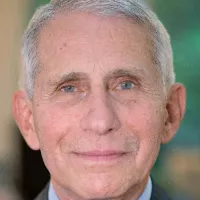
Anthony Stephen Fauci is a prominent American physician-scientist and immunologist...
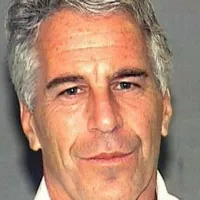
Jeffrey Epstein was an American financier and convicted sex offender...
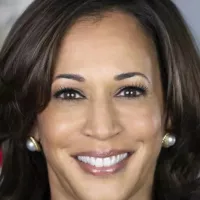
Kamala Harris is an American politician and attorney She served...
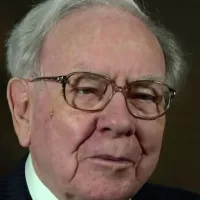
Warren Buffett is a highly successful American investor and philanthropist...
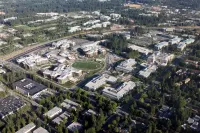
Microsoft an American multinational technology corporation headquartered in Redmond Washington...
Trending

37 minutes ago Iva Jovic faces Anna Blinkova at the ATX Open 2026: Predictions and Preview.

38 minutes ago Kulak traded to Avalanche for Girard in NHL deal involving Penguins.
38 minutes ago Canada to Assist Cuba Amid US Economic Pressure, Blockade Cripples Island's Economy
2 hours ago Hyatt's Credit Card Benefits and Expansion into Rome with New Regency Hotel.

2 hours ago Will Jacks shines as England defeats Sri Lanka in T20 World Cup.
2 hours ago Predictions and comments surround Kamil Majchrzak's tennis matches in Dubai and beyond.
Popular

Jesse Jackson is an American civil rights activist politician and...

Barack Obama the th U S President - was the...

Susan Rice is an American diplomat and public official prominent...

Bernie Sanders is a prominent American politician currently serving as...

Michael Joseph Jackson the King of Pop was a highly...

XXXTentacion born Jahseh Dwayne Ricardo Onfroy was a controversial yet...
